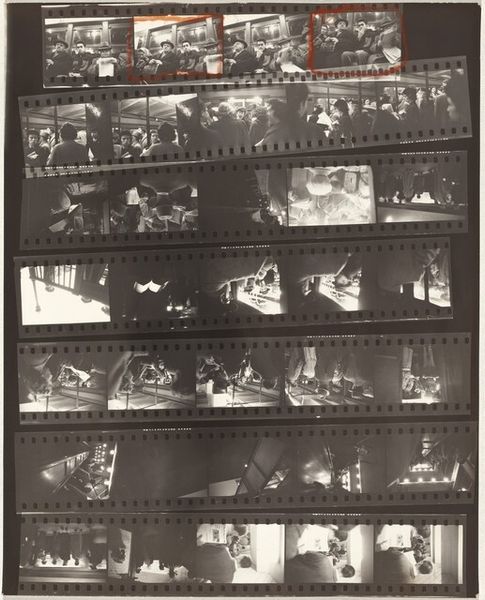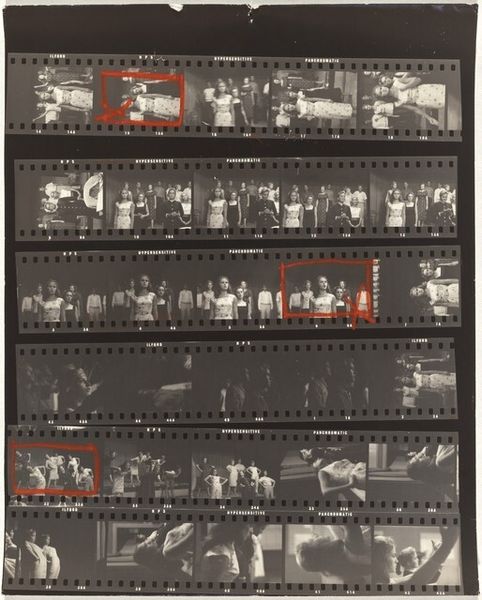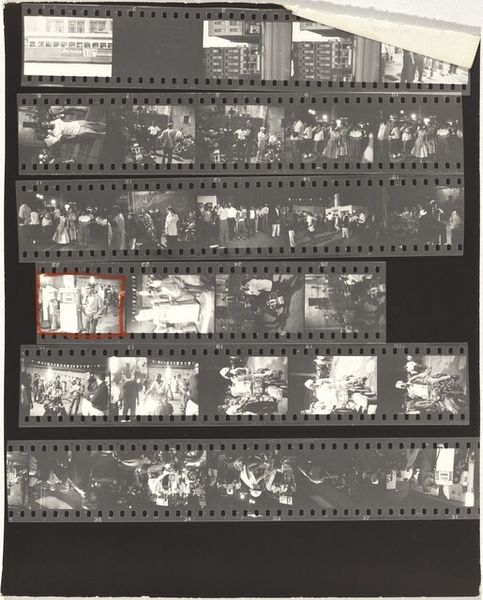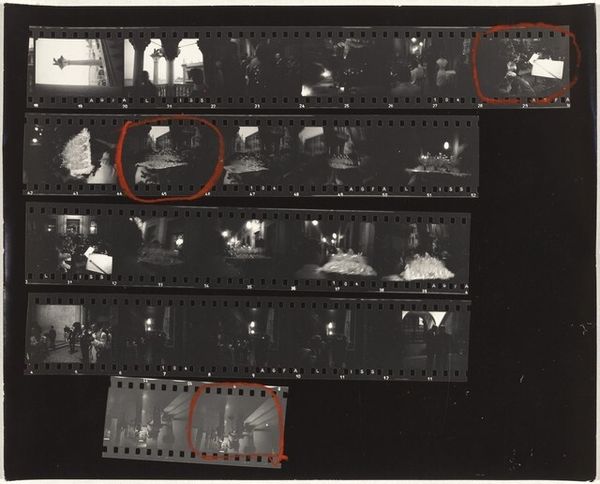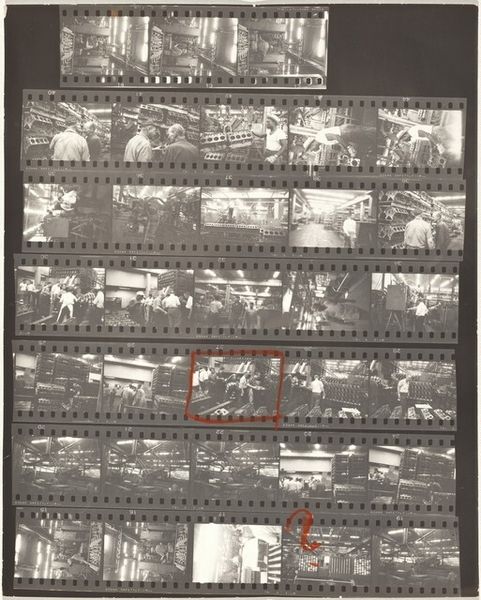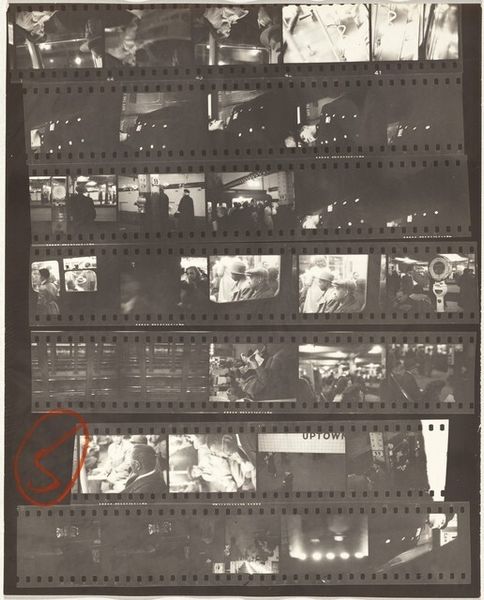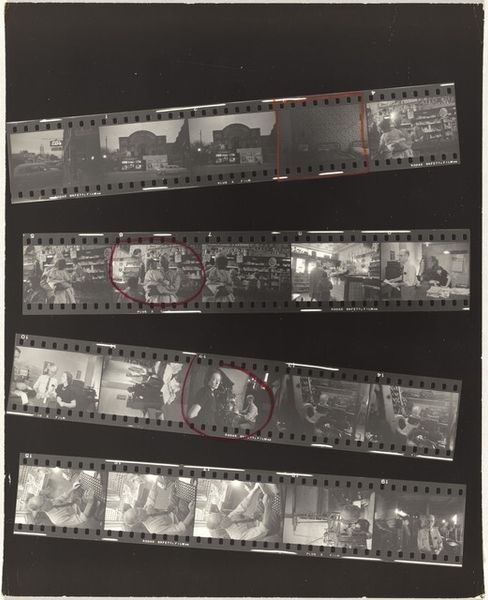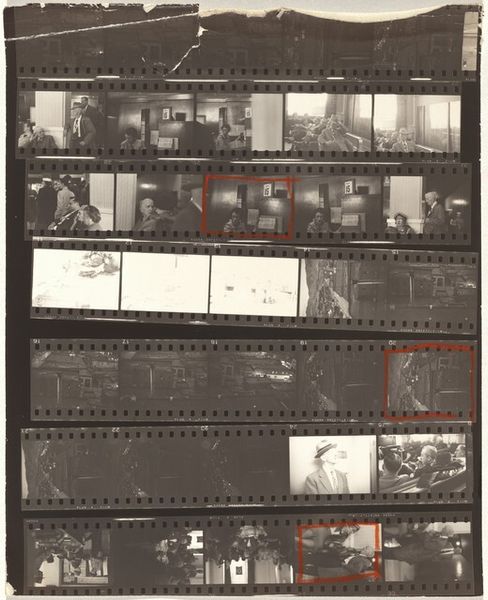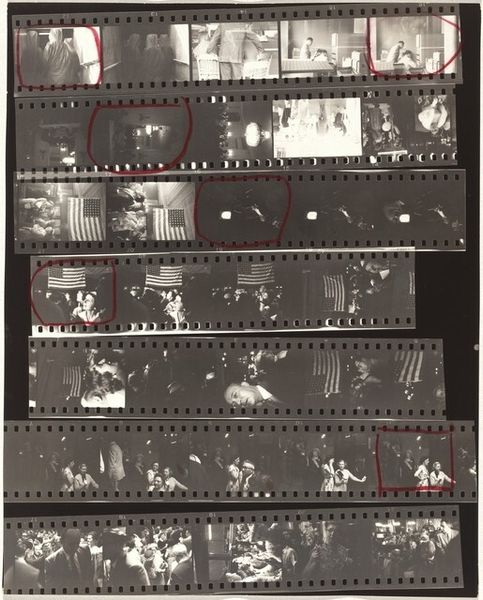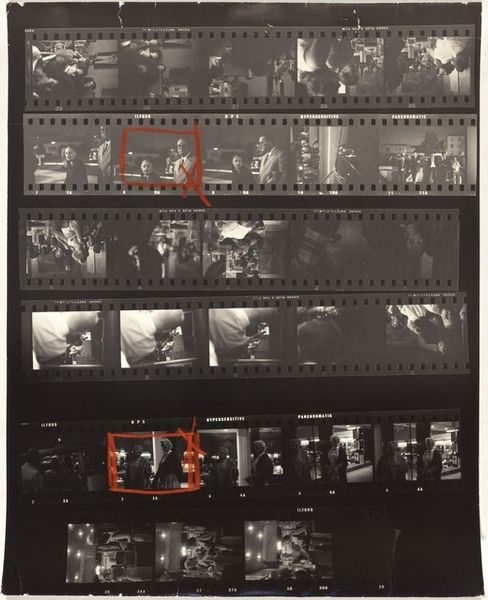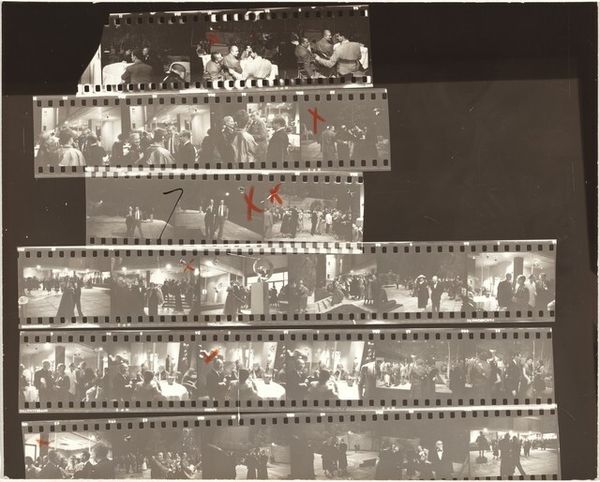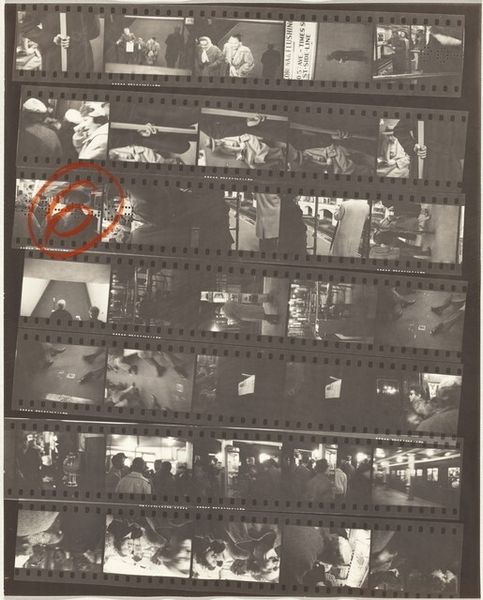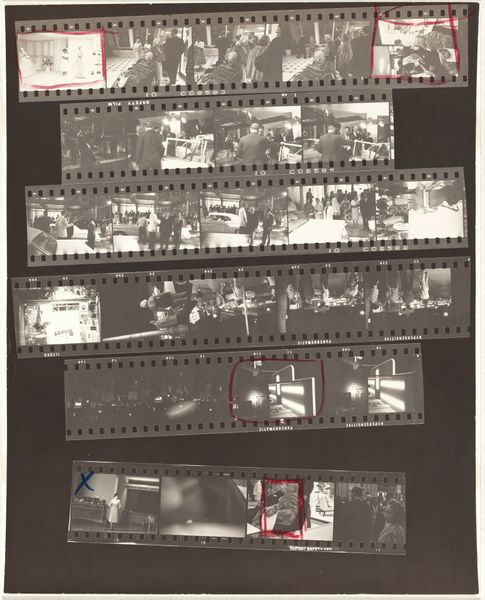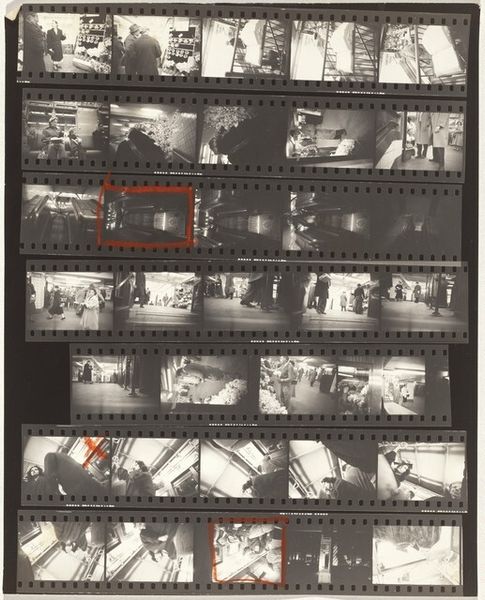
print, photography, gelatin-silver-print
# print
#
street-photography
#
photography
#
gelatin-silver-print
#
pop-art
#
realism
Dimensions: overall: 25.3 x 20.3 cm (9 15/16 x 8 in.)
Copyright: National Gallery of Art: CC0 1.0
Editor: So, this is Robert Frank’s "Guggenheim 86/Ford 9—Detroit," a gelatin silver print from 1955. It’s literally the artist's contact sheet with images of Detroiters and cars. What jumps out to me is how it's simultaneously gritty and glamorous; all those frames offer so many narratives but with some obscured images too. What do you see in this piece? Curator: I see a deliberate layering of socio-economic narratives. Frank wasn’t just photographing Detroit; he was capturing a pivotal moment in American history. Post-war America was riding high on industrial power and consumerism, fueled by places like Detroit and companies like Ford. But look closer: who benefits? Who's excluded from that "glamour" you mentioned? Editor: Well, I see mostly white faces in those clearer frames. And, I get the sense that Frank isn't glorifying this, but critiquing it maybe? Curator: Precisely! Consider the historical context: the Civil Rights Movement was gaining momentum. The promise of the American Dream was often a reality only for white Americans. Frank's photographs, though seemingly straightforward, subtly challenge that narrative. That dark contact sheet creates a layering to the image, hiding other frames as a symbol of obscuring this truth. How does viewing it through this lens change your perception of the work? Editor: It makes me think about what isn't shown, whose stories remain underdeveloped on that sheet, deliberately. The unedited frames, and images with an 'x' also tell a story, that not everything is visible and accessible. It really deepens the message. I see now this is far more than street photography, this image questions the socio-economic factors within race and gender inequalities, wealth, and work. Curator: Exactly! Frank prompts us to question the dominant narrative and to critically examine the power structures at play. It’s a reminder that art can be a powerful tool for social commentary and change.
Comments
No comments
Be the first to comment and join the conversation on the ultimate creative platform.
